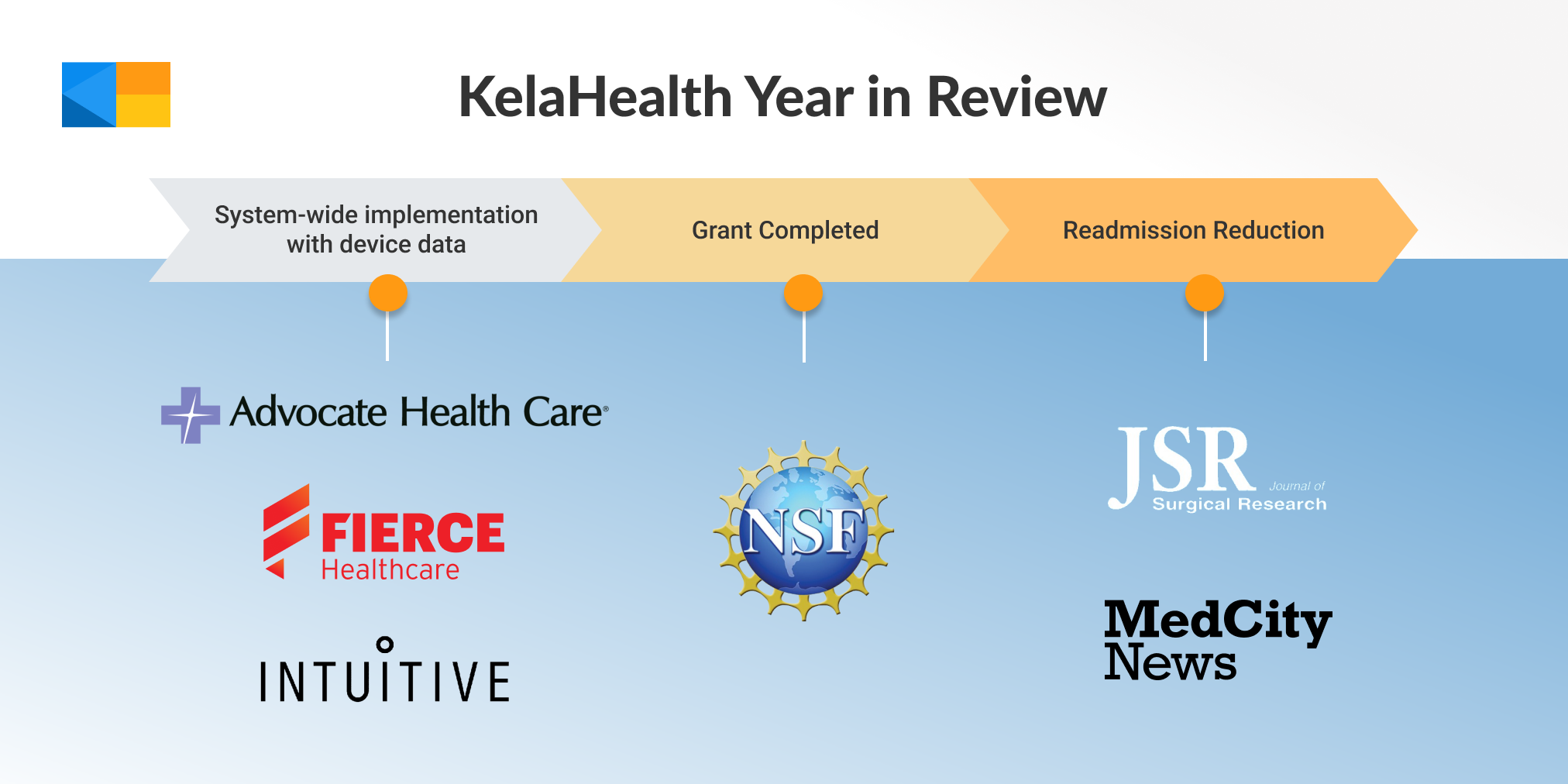Authors: Alan Young MD, MBA, Head of Clinical Partnerships, Gina Della Porta, DHSc, MHS, Director of Research, Joie Cooney, Head of Commercial, KelaHealth
Ahead of the American Association of Hip and Knee Surgeons (AAHKS) Annual Meeting, we wanted to share our thoughts regarding the role of artificial intelligence (AI) in orthopedic surgery - particularly as it impacts outpatient care. The shift in surgeries to Ambulatory Surgery Centers (ASCs) began prior to COVID, and has been accelerated as a result of changes in healthcare practice during the pandemic. It is clear that this trend is here to stay, and that Artificial Intelligence (AI) will catalyze and support this change in care.
ASCs Relieve Volume from Overburdened Inpatient Settings
The COVID-19 pandemic created a major disruption in the healthcare industry that resulted in numerous canceled or delayed orthopedic surgeries, which negatively impacted patient care - and revenue. Since the initiation of the pandemic, nearly 83.5% of orthopedic procedures in the U.S. have been delayed, postponed, or canceled, because they are labeled elective and therefore non-essential. Although some larger health systems have resumed normal surgical volumes, other hospitals and surgery centers are still struggling with backlogged cases and loss of revenue. Due to increased demand for inpatient beds for COVID-19 patients, as well as patient concerns about inpatient procedures, orthopedic surgery is increasingly being shifted to Ambulatory Surgery Centers (ASC).
ASCs Create Cost Savings for Patients, Employers and Payers
Moving joint replacement procedures to ASCs also brings significant potential cost savings. For providers, the estimated average operational cost overall for joint replacement surgeries (e.g. hip, knee, ankle, shoulder) per patient is about 40% less when conducted in the outpatient setting instead of in the hospital. In 2020, CMS removed total hip arthroplasty (THA) from the inpatient-only list of surgical procedures and added total knee arthroplasty (TKA) to the ASC-covered procedures list. This signals a clear trend toward identifying lower-cost outpatient settings to perform surgeries previously considered appropriate only in the hospital setting. For 2021, CMS added eleven procedures to the ASC-covered procedures list, including more total joint replacement procedures, such as shoulder arthroplasty.
Challenges with Outpatient Surgery
While on the surface the cost savings from shifting surgeries to ASCs appear to be significant, providers must take into account the potential for increased variable costs associated with avoidable complications or unplanned readmissions. In orthopedic outpatient procedures , patient optimization for surgery and site selection are key. Evidence from other surgical specialties shows the value of AI in aligning patients with individualized treatment strategies.
Clinical decision aids based on risk prediction models have proven to be effective in multiple facets of healthcare. These tools provide clinicians with machine learning based predictions that help to inform their treatment strategies. KelaHealth has expanded on this concept to create an individualized risk assessment engine that supports early optimization efforts, including site selection, tailored to each patient based on a customized risk profile, using machine learning algorithms. Our platform provides individually tailored risk assessments for each surgical patient, providing surgeons with valuable information at the point of care. After demonstrating cost savings and improvements in care in other surgical specialties, including in a study from Duke University published in the Journal of Vascular Surgery, the platform was expanded into orthopedic ambulatory care due to increasing demand for joint replacement surgeries and the growing need for this technology in ambulatory care facilities.
As the illustration below shows, KelaHealth is positioned to use insights and predictions from data science models at the point of care to augment a surgeon or care team’s clinical decision making and positively impact all stages of the patient’s surgical journey. With KelaHealth’s data-driven approach , clinicians can confidently predict which patients are candidates for outpatient surgery and how to optimize other patients to safely receive treatment in an outpatient setting.Schedule a time to speak with a member of the KelaHealth team and learn more about how we can help you and your organization.




